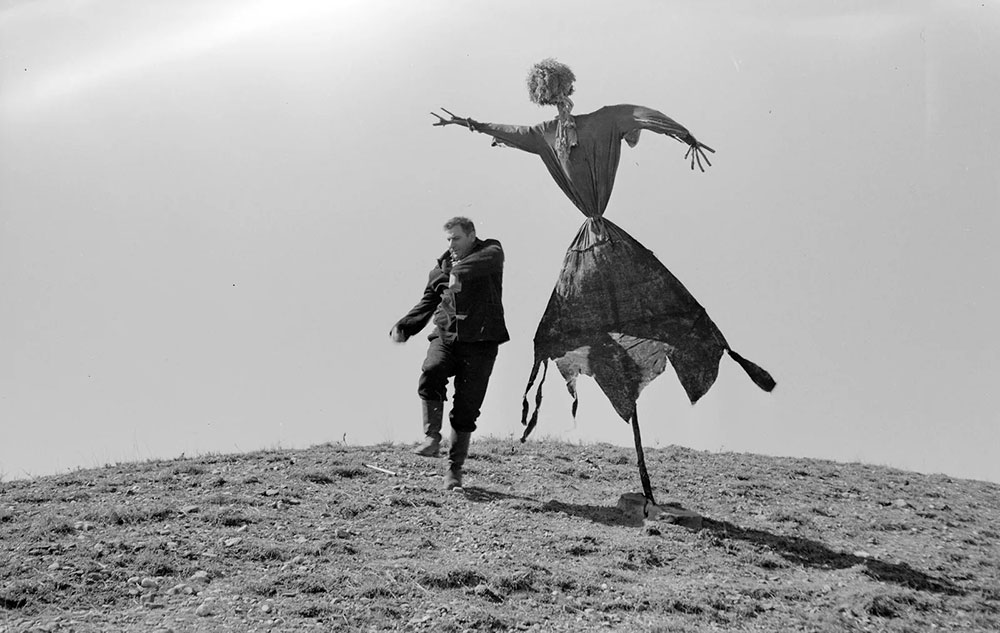Eldar Shengelaia became known for his relatively sharp critical voice as a director relatively early in his long career, particularly after the release of An Unusual Exhibition (1968). But The White Caravan (1963), his third film and first venture into realism, is part of a wave of Soviet films from the early ‘60s that depict the end of traditional ways of life as overtly melancholic and implicitly violent.
White Caravan uses many of the familiar elements of contemporary Soviet films, building on the theme of the sea as the ironic reverse of progress most memorably associated with Yuliya Solntseva’s Poem of the Sea (1958). A few stylistic quirks set the film apart stylistically from its period. Moments of high drama and collective joy revert to the impulses of montage and theatrical exploitation of shadows that feel drawn directly from earlier eras of filmmaking. A special concern for performance, from call-and-response polyphonic singing to an ad-hoc variety show, add light and space.
The film tells the story of a group of semi-nomadic Georgian shepherds organized around a stern, strong-jawed patriarch, Martia (Spartak Bagashvili). They find the lively abundance of their way of life frustrated from every angle: adult children who can’t seem to get married; pastures hemmed in by oil wells and factories; and production quotas facilitating an uneasy integration into a money economy, which in turn allows the seductions of the big city to draw off the vitality of these worlds of unalienated labor. The film’s opening scenes, surveying the intact-for-now mountain village as its inhabitants prepare for the departure of the men for the lambing season, recall those of John Ford’s How Green Was My Valley (1941), with similar intuitions of imminent destruction.
What might be simply elegiac is made more interesting by a lingering concern with the status of the material. The camera casts an especially loving, lingering gaze on some tender artifacts of its setting: the curly shepherds’ caps tossed carelessly on a head or in the dirt; an ersatz disco ball; a cart of freshly caught sturgeon rumbling down a wooden platform in the sun. These objects of common human use hold the world of the film together; only when the shiftless main character gives away the implements of his shepherding life does that world finally, tragically unravel.
White Caravan screens tonight, September 23, at Spectacle Theater as part of the series “Shengelaia’s Georgia: The Films of Eldar Shengelaia.”



